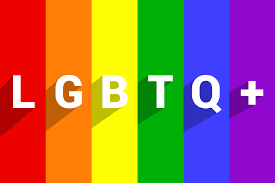Table of Contents
Introduction
LGBTQIA is acronym used for represent the community of sexual orientation or gender identity different from male or female heterosexual, and includes Lesbians, gays, bisexuals, trans genders (or trans), queers, intersex and asexual. In history, minority people whether religious minority, women or linguistic minority always faced discrimination in some ways. Similarly people with different sexual orientation or identity faced discrimination in different kinds in different places (whether in home, society or workplace). They found difficulties in revealing their sexual identity as they have fear of exclusion, or homophobic comments. They have to deal with several issues related to their sexual orientation and gender identity.
Issues Faced at Workplace
There are many issues that these people face in their daily routines such as offensive comments or homophobic comments, harassment, violence, threat to life, prejudice, discrimination, etc. Major thing they have to face is exclusion, i.e. exclusion from society, family, education or employment.
Most of these people face harassment at their workplace. They do not believe that it is good option to reveal their sexual identities with their colleagues at workplace. They have fear of getting negative responses from their colleagues (like offensive sexual jokes). This sometimes led to feeling of guilt in the person which as other negative effects. Sometimes it leads to hypertensions or death of the person. Even some people do not get jobs. And if they got one, they are not treated equally like they do not get equal wages or do not get promotions at the constant rate as compared to their colleagues at same position. Sometimes after revealing their gender or sexual identities, they get fired from their jobs. Some people do not want to include these peoples in their projects. Also, some do not find it good to include them in their unofficial groups. It leads to feeling of exclusion in them.
Rights of LGBTQIA people
Fundamental Rights:
Article 14 talks about the equality before law. Everyone should be treated equally no matter what their sexual orientation or identity is.
Article 15 contains provision of non-discrimination. No one shall be discriminated based on their gender at their workplace
Article 21 talks about right to life or personal liberty. Every person has the right to live with human dignity. Right to live with human dignity does not depend upon the fact that whether the person is heterosexual or not.
Judicial Interpretation
NALSA v Union of India: This is the public interest litigation filed by National Legal Service Authority before the Supreme Court. The court found that the non recognition of identities (gender or sexual) of transgendered people is violative of various fundamental or human rights given to them. For the recognition of their identities, court issued several guidelines in this case.
Navtej Singh Johar v Union of India: Constitutionality of Section 377 of IPC was questioned in this petition. They argued that this section is violative of Article 14, 15, 19(1) (a), 19(1) (c), 21 and concept of fraternity in Preamble. The court observed that as it criminalizes the consensual sexual acts of same sex adult partners, it is violative of constitutional provisions. The court partially upheld the provisions of this section and decided that LGBT community people are now legally allowed to enter in consensual acts.
Statutory provisions:
Transgender Persons (Protection of Rights) Act, 2019
This act is intended to empower transgendered persons in different fields like social, economical and educational. According to this act, transgendered person is a person whose gender does not match with that assigned at birth, regardless of whether he has gone through any kind or therapy or not, gender queer, person having intersex variation or person having any socio-cultural identities as hijra or kinner. This act prohibits the discrimination with any transgendered person. No discrimination can be made to any transgender in term of education, employment, medical healthcare, opportunities for job in public as well as private sectors, Access to public facilities, etc. This act resulted in formation of National Council for the Transgender person which monitors, advices and review the policies and programs for these people and also solves the grievances to them.
Conclusion
In today’s time, LGBTQIA are provided with rights to safeguard their dignity. They are given same status as male or female. Discrimination faced by these people is being prohibited in many countries legally. Many countries are giving legal recognition to them and are protecting their rights. Despite the fact that they have different gender identity or sexual orientation from the one that assigned to them when they born; although they are all human beings. Everyone should be given basic human rights. Everyone has the right to live with human dignity. They have feelings too and their feeling should not be disrespected in any manner. Although they should provided love and care by the people in their surroundings. There are some myths in our society about transgender person like they are people with gender disorders; they are born to get insulted and after their death they should get buried in dark so that they will not reborn with gender disorders. These kinds of myths should be removed from the society. It is not in control of anyone to born as a male or female or other gender. Getting attracted towards same sex or not feeling any attractions towards either sex is not in hands of anyone. It all occurs due biological factors. So no person should be discriminated for just their gender or sex orientation. If we treat them with love and care, they all will return us in same way. If we inspire them to get educated or motivate them at their jobs, they may become valuable assets for our country or whole world.
Author: Mayank Malhotra,
Student, School of Law, Christ (deemed to be University) DELHI-NCR

